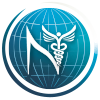Testicular Cancer
Safe surgical solutions for your health with accurate diagnosis, safe intervention! NY Health is always ready with its professional team.
- Liver Cancer
- Lymphoma Cancer
- Leukemia
- Bladder Cancer
- Stomach Cancer
- Myelofibrosis
- Multiple Myeloma
- Nasopharyngeal Cancer
- Esophageal Cancer
- Pancreatic Cancer
- Penis Cancer
- Prostate Cancer
- Uterine Cancer
- Testicular Cancer
- Thymoma Tumor
- Thyroid Cancer
- Urethna Cancer
- Mouth Cancer
- Lung Cancer
- Bowel (Colon) Cancer
- Kidney Cancer
- Skin Cancer
- Tongue Cancer
- Early Stage Breast Cancer
- Larynx Cancer
More information
Feel free to contact us for more information or support with your questions. We will be happy to help you.
Get in touch!Customer Service
+90 532 100 66 78

NY Health
TESTIS CANCER
Testicular Cancer
The most common type of urological cancer in young men - completely curable with early diagnosis
Testicular cancer is a cancer that develops in the testicles, one of the male reproductive organs, usually at a young age. (between 15-40 years of age) is a type of tumor. Although it has the potential for rapid progression, early diagnosis when diagnosed, the success rate is over 95%. The most common type is germ cell tumors (seminoma and non-seminoma).
Testicular Cancer Symptoms
Painless swelling or hardness in the testicle
Increase in testicular size or change in shape
Pain in the abdomen, groin or lower back
Feeling of heaviness in the scrotum
Sudden fluid accumulation (hydrocele)
Breast tenderness or enlargement (hormonal effects)
Shortness of breath, back pain in advanced stage (due to dissemination)
Note: Men who notice any swelling in the testicle should immediately consult a urologist. is recommended to apply.
Risk Factors
- History of undescended testicle (cryptorchidism )
- Family history of testicular cancer
- Previous testicular cancer (in the other testicle)
- HIV infection
- Genetic predisposition (such as Klinefelter syndrome)
- The incidence is higher in Caucasians
Diagnosis Process
- Physical examination: The presence of a mass in the testicle is evaluated
- Scrotal ultrasonography: Mass characteristics and extension are clarified
- Blood tests (tumor markers):
◦ AFP (alpha fetoprotein)
◦ hCG (human chorionic gonadotropin)
LDH (lactate dehydrogenase)
- CT/MRI: Evaluation of spread to the abdomen and chest
- Orchiectomy: Surgical removal of the testicle for diagnostic and therapeutic purposes
Types of Testicular Cancer
Seminoma
- Grows slowly
- Sensitive to radiotherapy
- Often diagnosed at an early stage
Non-seminome
- More aggressive
- Potential for early spread
- Subtypes: Embryonal carcinoma, yolk sac tumor, choriocarcinoma, teratoma
Treatment Methods
Surgery: Radical Orchiectomy
- Removal of the testicle through an incision in the groin area
- Lymph node dissection can be added if necessary
Chemotherapy
- Used especially in non-seminomas and advanced stage patients
- Cisplatin-based protocols have a high success rate
Radiotherapy
- In the case of seminoma, it can be applied in patients at risk of spread to the lymph nodes
Follow-up / Active Monitoring
- In low-risk and early-stage patients, treatment-free follow-up is possible under strict control
Process Management Suitable for Health Tourism Process Management Suitable for Health Tourism
- - Remote preliminary evaluation with scrotal USG, tumor markers and reports
- - Planning the surgical procedure in a short time (usually 1 day hospitalization)
- - Sperm freezing after treatment, fertility counseling
- - Transfer, accommodation and escort support for international patients
- - Oncologic follow-up after surgery, chemotherapy planning and remote monitoring
Testicular cancer is one of the cancer types with the highest success rate when detected early.
If you have a suspicious swelling, symptom or control request, you can start the process by contacting us.
